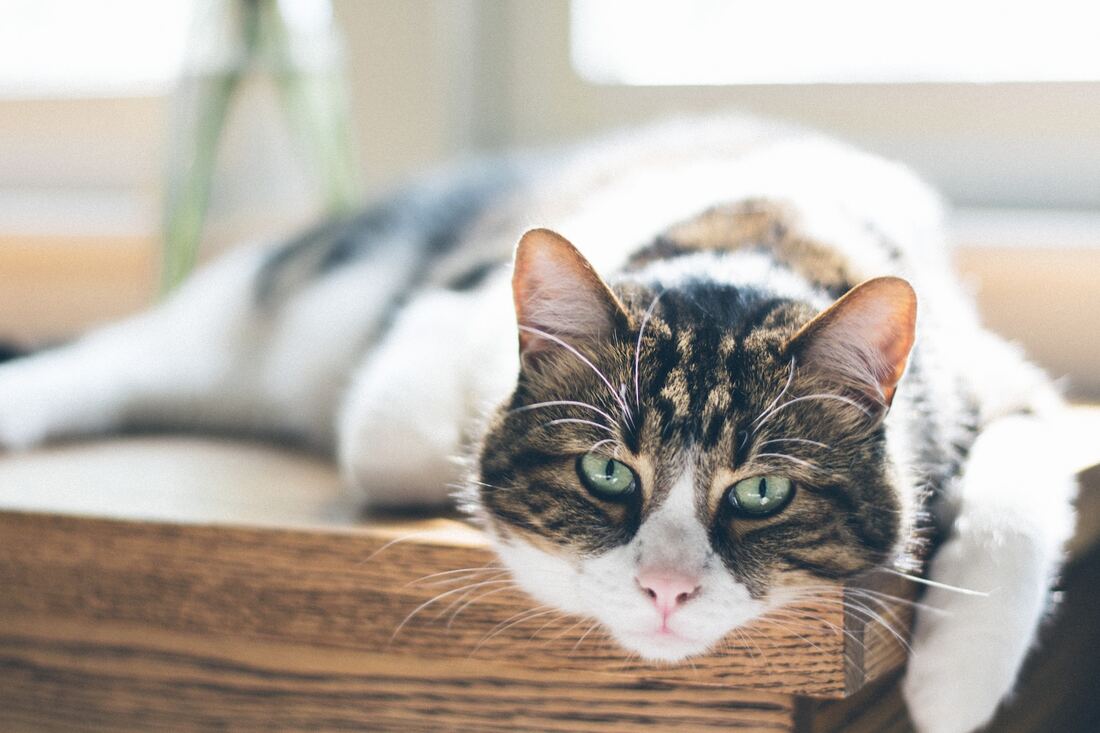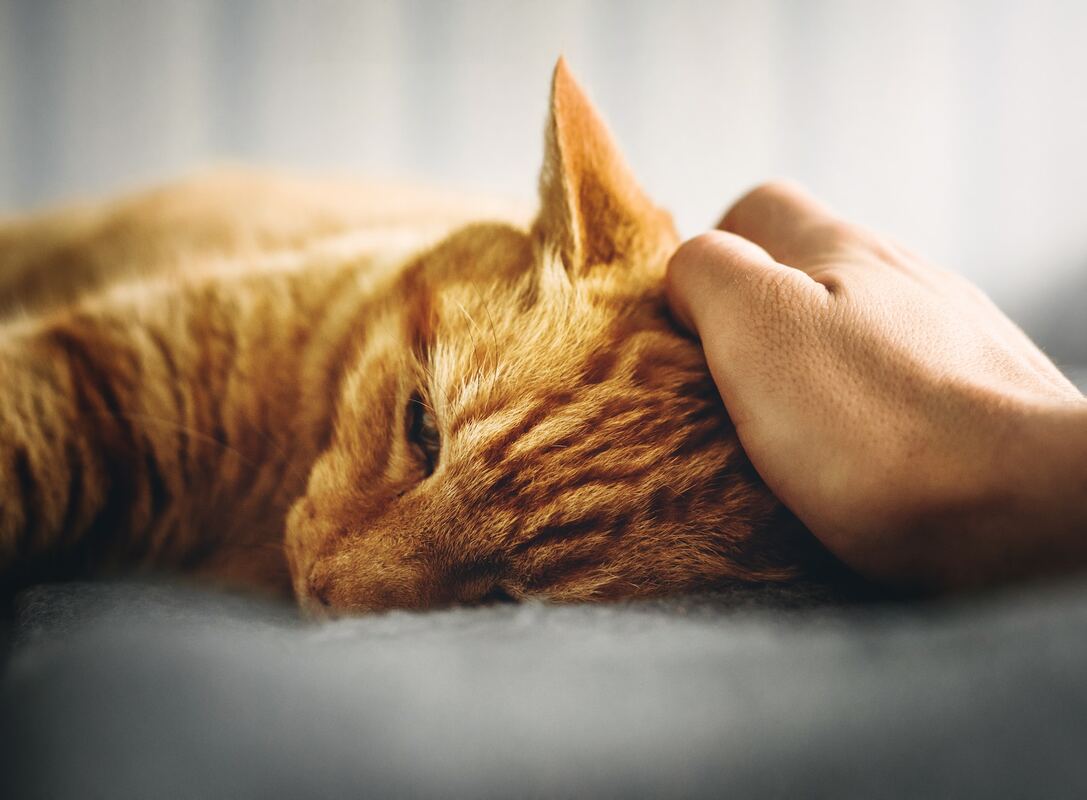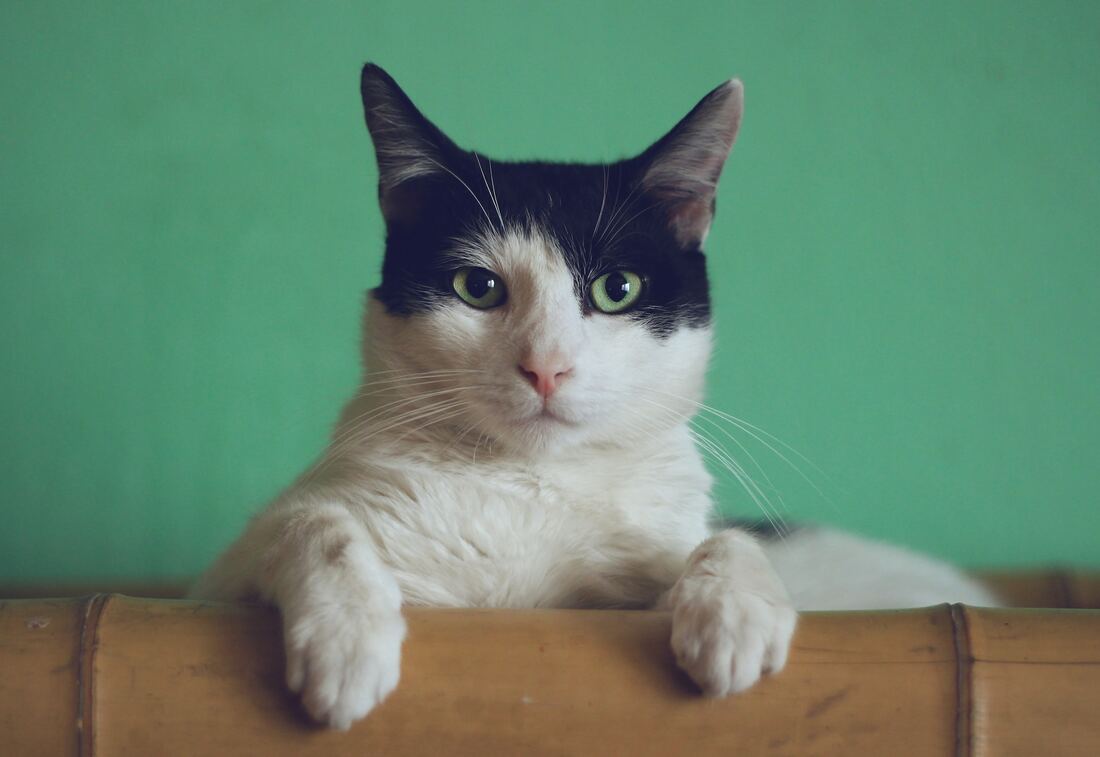|
Things to consider when choosing where to board a senior cat
As pet medicine advances, our furry friends are living longer and healthier lives. For the devoted pet owner, this means we need to make adjustments to ensure our pets’ health while we’re away. I frequently get phone calls about boarding senior cats whether or not this is “okay.” 15 years and over, we are happy to refer you to vet for medical boarding. This age group needs some extra attention by medical professionals. Geriatric cats are designated at 15 years. At age 10, cats begin to enter the senior years. Having had my cats live to 15+, I understand the concern and what accommodations need to be met to help make these kitties more comfortable while away from their homes. Here are some areas which we focus on with senior cats. Medical Attention Senior cats should be seen more frequently than a younger cat or as recommended by your vet. From regular checkups to monitoring blood work or dental care, older cats require a bit more attention to really enjoy their senior years. Some cats have to take daily medications and supplements. At the cat spa, we have had several cats with daily or even twice daily medications come to stay with us. Unfortunately, finding a facility that will carefully and correctly administer medication can be rare. I boarded my cat Maddie at one place and upon pick up, the kennel stated they didn’t bother giving her her pills since she was “too stressed.” Boarding your cat should give you peace of mind that your cat is being taken care of as if they were at home. At Rock the Cat Spa, you can rest assured that we will administer the medication as needed with kindness and precision. Dietary Requirements Sometimes the cats have special dietary requirements. Overfeeding, underfeeding or feeding a cat the wrong thing can cause many issues. Some of these include:
While all cats are rockstars, older cats may not be quite as agile as they once were. The suites at Rock the Cat Spa take these factors into consideration. Senior cats in The Hotel Catifurnia will be given the lower suites so as not to cause or tempt the cats to jump out onto the floor. The Catz Carlton and Taj Meow both have lower doors in the litter box area to allow for ease of walking straight into the vertical suites. The Purresidential Suites and Fur Seasons have higher beds but also have steps and small cat towers for the cats to walk up or jump in small increments. The spaces are wide enough in each space for the cats to stretch properly and not be cramped or fall off and risk an injury. For accessibility, the litter boxes all have low edges on the boxes. In the common space, there are extra boxes out so when the cat is out roaming for free time, they have a litter box close by just in case they can’t make it back to their suite. Playtime Activity and playtime can be the difference in a senior cat’s quality of life. Some cats have limitations with mobility and energy levels, and it’s important that you pay attention while playing with them. Senior cats may have arthritis and stiffness just as we do! Some easy ways to play with a senior cat (without overexerting!) include:
Senior cats also do not have the energy or endurance of a younger cat so shorter less aggressive play needs to be respected. Playtime is important still to keep their minds active and joints moving. Grooming Having had a senior cat who became unable to groom herself, I understand the need to help out these cats. Daily brushing or helping them clean up is important. Helping when they are unable to reach or bend is important for their coats and to prevent mats, greasiness, skin irritation, and dandruff. There are many different brushes we use here for each unique coat and area of concern. At Rock the Cat Spa, we really try and accommodate each guest and understand the extra care that a senior cat may need. Upon bedtime, a dim soft light lamp and classical music are left on to help provide soothing sounds for the cats to sleep to. A small bedtime snack (a couple cat treats!) are left on their pillow as well if approved by their owner. As your senior cat will rest cozy and calmly here, you will as well knowing that their needs and requirements are being met and exceeded. We are always happy to refer your geriatric cat to a veterinarian boarding facility!
0 Comments
"Grief is like a snowflake. Unique and different for everyone."
How I dealt with my cat's passing. It’s hard to believe that it has been four years this week since my beloved Maddie suddenly passed away at the ripe old age of 15. I knew that the day would come as it had 15 years prior with my 18 year old Guenivere. Still, no amount of logical reasoning can prepare you for the death of a pet. No matter what made logical sense to me, the actual days leading up to her death and time afterwards seem surreal and unimaginable even now. Maddie was fine one day and then suddenly, my vet was having the discussion with me over what to do if she passed over the July 4th weekend. I was numb and my mind was spinning as I tried my best to come to grips with it, yet I could not. Two weeks afterwards, my mom came to visit and we made the trip to pick up her cremains and I completely lost it. Complete dry heaves, tears flowing, sobbing from deep inside. She helped me cope and handle my grief in a healthy way which is much easier said than done at times. How to to Grieve in a Healthy Way Losing a pet can be devastating as they truly do become part of the family and we grieve the same as if we did lose an adored family member. The suggestions below are not in any specific order. However, these coping mechanisms worked well for me and are basic tools for handling grief of any sort. Lean on Friends and Family for Support. I’m sure that I drove one of my friends crazy with Maddie stories in the weeks after her passing. Yet, my friend kindly listened, checked in and really was a rock for me and still is, especially this week. Having friends or family who understand what you’re going through can empathize with how devastating this loss is. It can be tough though, as sometimes friends and family don’t understand your pain or feel overwhelmed by it. If you don’t want to turn to friends and family, consider outsourcing your support network. Online support groups and professional help are also great options. Therapists are trained to help with these situations and can sometimes steady us better than anyone else. Unbiased support can help us see things with clarity and advise us in ways that friends and family can’t or may not be able to. Allow Yourself to Mourn Your Pet. It sounds so simple but is the hardest thing to do. Whether the loss was sudden or expected, it is a huge loss. Being sad is expected and encouraged as a healthy way to come to terms with the grieving process. Don’t try to avoid the pain altogether, as this can draw out the grieving process even more. Avoidance is never the best solution since problems may unexpectedly come back even worse. When we lose a person close to us, we have a proper funeral and closure process. While society sometimes still does not understand the pet/human bond, take time to think about the funeral equivalent for your pet. Ask yourself what ways you can honor your pet’s memories and begin the closure process for yourself. Keep the Good Memories Alive When I picked up Maddie’s cremains, I was a mess. I sobbed in my car as my mom watched me. Gently, she said, “tell me a funny story about Maddie as a kitten.” Was it a good distraction to get me focused and out of the parking lot? Yes and no. Discussing good times and funny memories can help shift that raw grief into a good, positive emotion and help one feel better. There will be times to discuss the crazy and bad things the pet did also but try and focus on happy memories for the immediate grieving time. Talking about her did make me feel better, but there are also other ways to re-live these memories. Whether it’s writing in your journal, blog, painting a picture, or planting a new flower garden ( I have a little area called Guenivere’s Garden with lily of the valley and cat statues), do something that will help focus the energy on good and help you feel uplifted. Find Your Calm As many therapists would advise, you should find something to calm and center you. My focus was meditation and relaxation exercises. These strategies helped me control the anxiety and stress that sometimes felt out of control and overwhelming. Exercise can also help. Getting into a new routine to sort of hit a reset button and move things in a new direction can also ease that pain. For example, if you always brushed your cat before bedtime, that empty time can feel upsetting once they’re gone. A new routine may help you cope and retrain you from that now sad memory. Pick new, healthy routines and focus on making them succeed. Take Care of You You matter. You need to take care of you even though grief can be very rough. It’s a tough emotion to grapple with and can be exhausting at times. Allow yourself to sleep a little extra. Encourage yourself to eat right as it can be easy to grab the pint of ice cream instead. Emotions are okay to feel during this time. Don’t punish yourself for feeling human emotions. One of the hardest can be guilt. I found myself in the midst of mental loops that went something like, “if I had taken her to the vet a month earlier...,” or “if I had tried this instead of that...,” and “why wasn’t I more attentive?” Those spirals do no good. Once you catch yourself falling into these patterns, acknowledge how you got there and what triggered the negative emotions. Then, try a coping mechanism that’s worked well for you in the past. My go-to was talking to a friend who always managed to snap some logical thinking back into me and steady me. Deal With Things in Your Own Time “Don’t promise when you are happy. Don’t reply when you are angry. Don’t decide when you are sad.” This quote applies to so many situations, but the last part is an important lesson during grief. To me, the last part is dealing with the memories. The bed, the dishes, the food, the toys, the collars, the physical reminders that really cut us to the core. To this day, I still have a stuffed toy dog that Maddie was given in her first month home. She dragged that thing all over for 15 years and it is torn and in shambles. Initially, it broke my heart to look at, so my immediate reaction was to toss it. Thankfully, my dear friend advised me not to and said to hold off for a while. It was the right advice as if I had thrown it out, I would not be smiling and laughing at memories of her carrying that dog up the stairs while howling at 5 am and dropping at my bedside! If you absolutely can’t bear to have their toys in view, pack them safely into a box and revisit it later. Give these physical memories time, they aren’t going anywhere but the fever high pitch of emotions will diminish. Then make your decision. Don’t Forget Your Other Pets Remember your other pets as they grieve also. Even if they didn’t get along or always seemed annoyed, they were family members to one another, too. They can feel sadness and loss and not understand where their friend went. When Maddie passed, even my Daphne grieved, which surprised me. Three days after Maddie passed, Daphne jumped up on the bed where Maddie had spent her last few days and laid exactly in the same spot, hunkered down and just looked up at me with sad eyes. I realized then that she knew what had happened. She would meow a bit and wander around looking for her companion. Give the other pets some extra love and attention and watch their daily routines. Some may skip meals or act out. If any of the regular routines and behaviors starts to be negative, a call or visit to your vet may be necessary. As you can tell, this post really tugs at my heart. I’ve had customers tell me about their cats passing or recount a story of a prior cat with tears in their eyes. I can understand how they feel, as it can be tough. It’s not something you easily can discuss either, as some may dismiss it. Understanding that pet grief is real is part of coping with it. Having a map can help navigate this journey and help ease the pain. How to prevent and address separation anxiety in cats
Having traveled for work for years, my sweet Maddie knew the second she saw my suitcase that I was leaving her alone for more than a day or two. She would growl and bite my ankles as I packed my clothes. I felt horrible for having to leave her in that state as she was very much attached to me and truly hated to be alone and away from me. After the second time, I learned quickly to place the suitcase out of sight and pack as quickly as possible. For many cats, separation anxiety is a very real issue and can cause destructive behavior issues. So, what are we to do when we have to leave our precious felines? What is separation anxiety? Just like humans, some cats are loners and don’t mind being left to their own devices. Others are social creatures and love attention and being around people. Cats can become attached to their owners and really stress out when we’re away. To express this distress, cats may become upset and even destructive. Heavily attached animals look to their owners for security, so being alone will cause anxiety and stress. Separation anxiety is real and if you have had a cat with it, you can agree that leaving or coming home can cause you stress! Signs of separation anxiety
There are several options to help your cat through separation anxiety and avoid the behaviors listed above. Ways to deal with separation anxiety
Knowing that your cat is being given love and attention can give you peace of mind and help you enjoy your trip. Picking up a happy relaxed cat is worth the money rather than spending time cleaning up the path of destruction at your home. Having dealt with feline separation anxiety, I understand how stressful a trip can be. From leaving a crying cat to coming home and finding a mess is waiting for you, it’s never fun. Finding ways to cope with this anxiety will help you both and bring the stress level down in your home. |
AuthorWhen Cari has some free time from all the kitties, she likes to share her knowledge of all things cat in this bi-monthly blog. Enjoy the read! Archives
June 2024
Categories |




 RSS Feed
RSS Feed